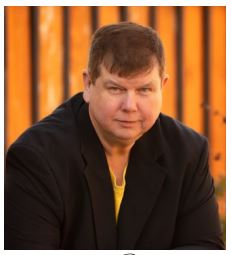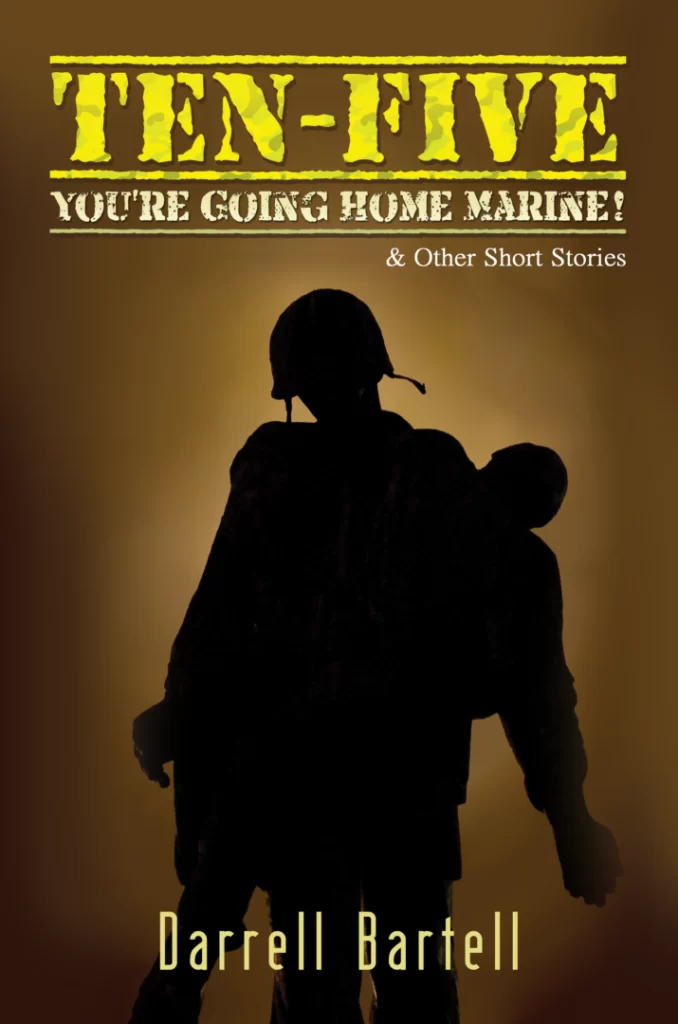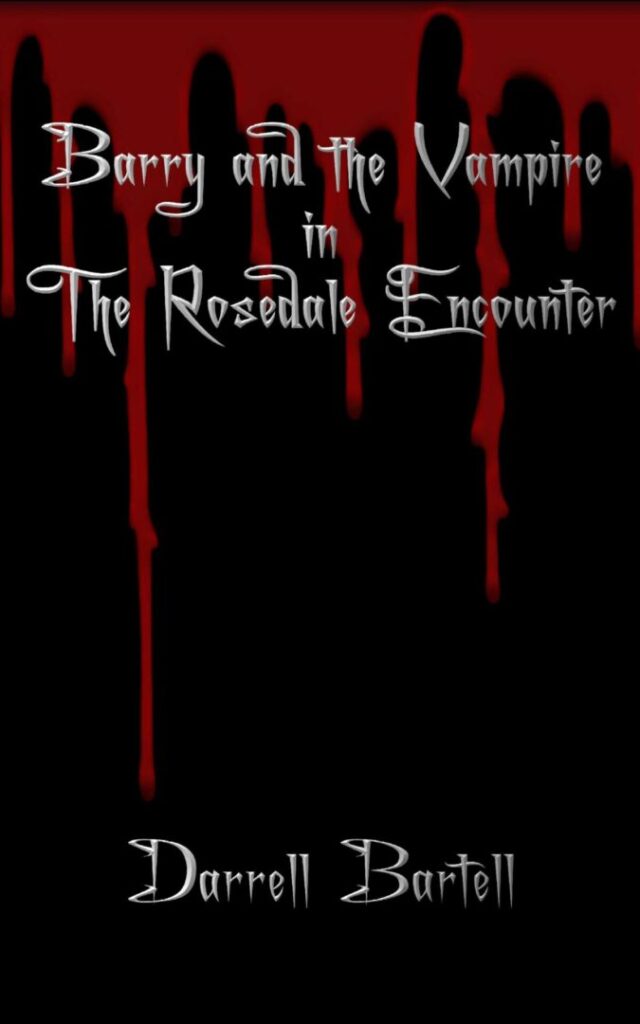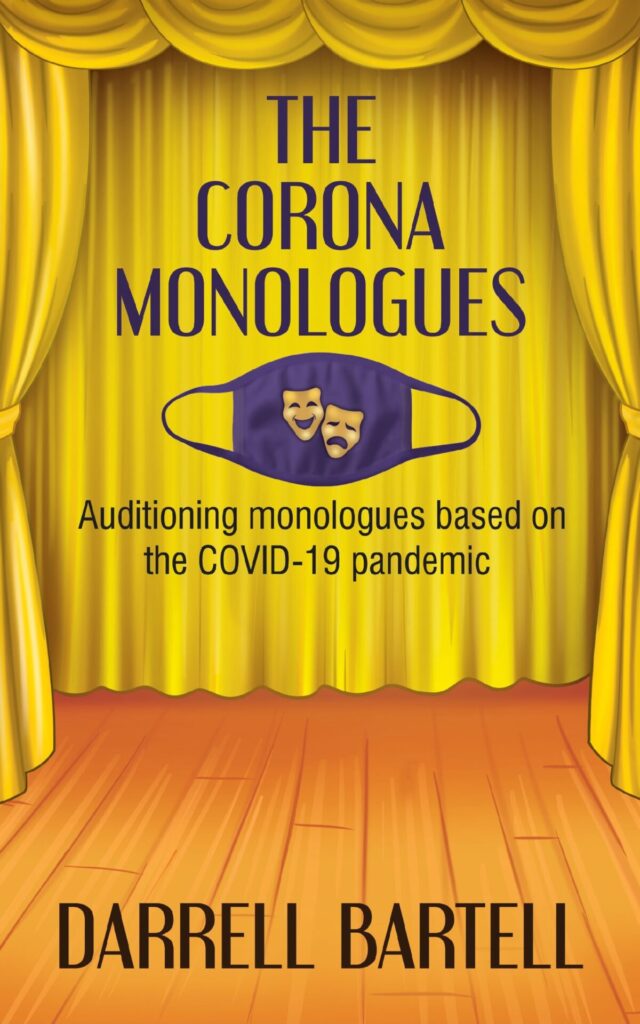Sometimes, for these interviews, the emails don’t travel far. I’ve known Darrell Bartell for a few years, and we belong to the same local writing critique group.
Darrell Bartell—actor, playwright, short story writer, author, former cab driver, security officer, stage magician, future radio broadcaster, and cancer survivor—completed his MA in drama at Texas Woman’s University. His script, “Bragging Rights,” a ten-minute one-man play based on the school shootings at the time, earned him a trip to Valdez, Alaska, in June 2000, where he met and learned from the late Pulitzer Prize-winning playwrights, Edward Albee and Horton Foote, and actresses Betty Buckley and the late Marian Seldes.
Darrell earned his theater degree after battling cancer and later earned an MA degree in English with a minor in communications from Southern New Hampshire University. As a US Army veteran and former private investigator, while attending the American Broadcasting School in Arlington, Texas, Darrell based the format of his radio show on television’s “Americas Most Wanted” and featured unidentified victims, missing persons, and wanted fugitives while providing leads to law enforcement and medical examiners for those cases.
A member of the Fort Worth Writers, Darrell wrote the play, “When the Echoes Whisper My Name,” which is based on several unidentified victims’ cases he is working on and received second place in the Oklahoma Writer’s Federation Inc. (OWFI) 2011 playwriting contest. Darrell’s play, “The First One-Hundred Days,” about the first woman president of the United States, also took first place in OWFI’s 2013 playwriting contest. “The Specter Society,” one of ten short plays Darrell wrote during the pandemic, was produced by Dallas College and Palo Alto College on Zoom in April 2021 and is available on Youtube here, starting at time 43:26. Darrell’s book, The Corona Monologues, won the 28th annual, 2022 Communicator Award for distinction in writing. He tries to find and write about subjects that haven’t been brought to the stage.
Here’s the interview:
Poseidon’s Scribe: How and when did you get started writing? What prompted you?
Darrell Bartell: This could take a while. I never started out to be a writer. I went to Tarrant County College and took an English II class. I was failing my exams and the instructor hated my papers. So, I dropped the course. About a year later, I decided to get serious about my college education. I signed up for English II again and sure enough, I had the same instructor, Tawny Kilbourne. This time I was prepared. I passed his exams and was getting good grades on my essays. Then came the final essay. I was to take a poem, a play or a short story and take an event from my life and write an essay. I used Margaret Atwood’s story “Rape Fantasies,” and surprisingly got an “A” on the paper entitled “Nightmares.” My instructor said the paper flowed well and wanted to see it published. The essay was published in TCC’s Under The Clock Tower literary magazine. The rest is history.
P.S.: Who are some of your influences? What are a few of your favorite books?
D.B.: It isn’t so much as who but what are my influences. I draw from my personal life and current events. They’re the greatest resources I can have when writing. My favorite books are the ones that provide information (resources) for my writing. I try to get as much detail as possible for the reader.
P.S.: Your bio lists many occupations. Have your drawn writing inspiration from all of them? Also, are there some jobs that influenced your writing more than others?
D.B.: I haven’t drawn inspiration from all of them, but quite a few. US Army, security officer, Texas Hold ‘Em dealer, and cab driver have given me a lot of material to work with. I would have to say the military is the one job that continues to influence my manuscripts.
P.S.: Would you agree that much of your writing could be described as dark? If so, what attracts you to that type of fiction? If not, what term fits better?
D.B.: I don’t know about dark. I write about a wide range of subject matter. I don’t have a specific audience. I simply write whatever comes to mind and my sense of humor is probably as unique as it will ever be. I leave it up to the reader if my writing is dark or macabre, but I do try to leave an impression.
P.S.: Your short story collection Ten-Five – You’re Going Home, Marine! is receiving acclaim. Congratulations on the interview about it in the podcast ‘Fort Worth Roots.’ Give us an overview of this book and what ties the stories together.
D.B.: Thank you. The book is an anthology of 23 short stories about different people from different backgrounds dealing with different situations. Each one has a twist at the end no one saw coming that I hope leaves an impression with the reader.
P.S.: Of short stories and plays, which is your primary medium (if you have one)? How do you decide whether a new idea will end up as a short story or as a play?
D.B.: I want to say playwrighting, but it’s been more and more novel writing. To be honest, I don’t decide if the manuscript will be a play or short story. I let the words and the characters decide that. What I try to do most is find material that hasn’t been brought to the page or to the stage before.
P.S.: You teach creative writing. In addition to helping students, has that experience helped you grow as a writer, too? If so, how?
D.B.: Absolutely. As an instructor I see the writing styles of beginning students with potential. Reading their essays helps me look at their creative and critical thinking process. Which changes every semester with every class of students. So I learn from my students all the time.
P.S.: The book trailer for your novel Barry and the Vampire in the Rosedale Encounter is creepy and enticing. Tell us about the protagonist of the novel and what challenges he faces.
D.B.: Barry McElroy is a 17-year-old high school student who has a chance to get into college. He’s been raised by a single mom ever since his father, an Army Ranger veteran left home after an episode of PTSD. On the way home from school, he’s attacked by a group of thugs called the Rosedale Gang and is rescued by the beautiful vampire, Casey. The next day, while researching his paper about unidentified victims and missing persons he comes across Casey’s niece who is listed as a runaway. When he brings this to her attention, they set out to find her in the hopes she doesn’t end up like Casey and become a vampire. He overcomes several obstacles from staying alive to staying a step ahead of law enforcement during the quest.
P.S.: What non-writing hobby or interest do you have? Does it complement your writing or is it a relief from writing?
D.B.: My non-writing hobbies used to be Chess and Texas Hold ‘Em. Unfortunately, I had to step away from them because I wasn’t getting much writing done. Lately, I’ve been researching my short stories by watching everything from American Horror Story to Friday the 13th, The Series. Hhhmmm. Maybe my writing is dark after all. 😉
P.S.: What are the easiest, and the most difficult, aspects of writing for you?
D.B.: Sometimes the easiest and the most difficult aspects of my writing is trying to find the through line. Making sure everything flows well and fits from start to finish. Also, making sure my characters are developed properly, It happens to the best of us writers, but sometimes we fall into the trap of our characters sounding the same.
P.S.: Your book The Corona Monologues contains many dozens of statements from people as if they were auditioning for a play. Through them, readers experience the spectrum of human reactions to the recent pandemic. Why did you choose to express your thoughts about the COVID-19 pandemic in this form, as opposed to a short story, novel, or play?
D.B.: At the time of the pandemic, I didn’t plan on writing a book of auditioning monologues. I was going to work on book two of Barry and the Vampire. Like everyone else in the country, I was temporarily laid off from work, but like I said, current events are the best resources for writing. Every time I turned on the television or logged on to the internet, a monologue was begging to be written. For every monologue I wrote, I probably missed ten or fifteen others. There were too many characters coming at me, and it wasn’t possible to put them in a play or short story form. This is what happens when you have a theater background.
P.S.: What is your current work in progress? Would you mind telling us a little about it?
D.B.: Of all things, I used to work as a security officer in a hospital. I got to know the doctors, the nurses, and the support staff. I kept trying to figure out how to write their stories and after I left, I suddenly got the idea to have a different take on the medical profession in ways that has never been done before from my perspective. I’m working on a third short story on my latest anthology that I hope to get published next year entitled: Haunted Tales from the Hospital. There will be something for everyone.
Poseidon’s Scribe: What advice can you offer aspiring fiction writers?
Darrell Bartell: Easy. Keep a journal. Writing in a journal is to the mind what exercising at the gym is to the body. It has to be done well and often for it to work. Write about your hopes, your dreams, and your fears. Write about your family history. Write about the friends you’ve made and the women you’ve loved. I’ve been keeping a journal for over 25 years, and I hope to turn them over to the Fort Worth Archives before I leave this earth. I should be on journal #60 by the end of the month. Also, find a writer’s group. You can’t go wrong finding a group of people who share the same passion as you and want to help you succeed. A group of fellow writers can help you by finding mistakes you over looked and making suggestions to improve your manuscripts.
Poseidon’s Scribe: Thank you, Darrell, and congratulations on being a cancer survivor and on your many writing accomplishments.
For readers curious to know more about Darrell Bartell, follow him on Facebook, Twitter, LinkedIn, his Amazon page, and Goodreads. You may also listen to this podcast interview of him by Carol DeChaine and this video podcast interview on Fort Worth Roots, featuring Darrell’s book Ten-Five – You’re Going Home, Marine!




